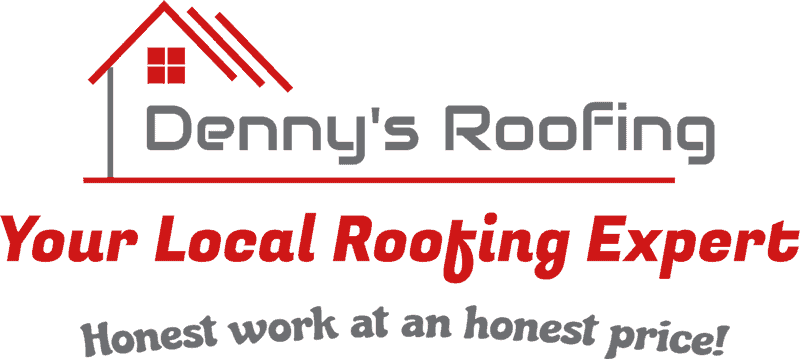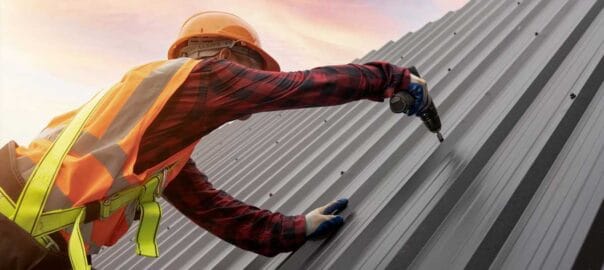Regarding roofing, most homeowners are familiar with traditional materials like asphalt shingles or tiles. However, over the past few decades, metal roofing has become a serious contender—and for good reason. Whether you’re looking for durability and energy efficiency or want to make a bold statement with a sleek, modern design, metal roofs are catching the attention of homeowners everywhere. But like any home upgrade, there are pros and cons to consider before you leap to metal.
In this blog post, we’ll break down everything you need to know about metal roofing—from its pros to its cons—to help you decide whether it’s the right option for your home. Let’s get into it!
What is Metal Roofing?
Before we dive into the advantages and disadvantages, let’s take a moment to understand what we mean by “metal roofing.” Metal roofing can refer to a variety of materials, but the most common types include:
- Steel (the most popular option due to its durability and affordability. Especially here in Colorado)
- Aluminum (lightweight and corrosion-resistant, great for coastal areas)
- Copper is one popular type of metal used in premium metal roofing. (pristine aesthetic but quite expensive)
- Zinc (A metal roof is known for being long-lasting compared to traditional shingle roofs. and eco-friendly)
- Tin (a classic option, though less common today)
Metal roofing typically comprises interlocking panels or tiles designed to shed rain and snow while providing superior protection against the elements. These roofs are often coated with protective finishes to ensure they last for decades.
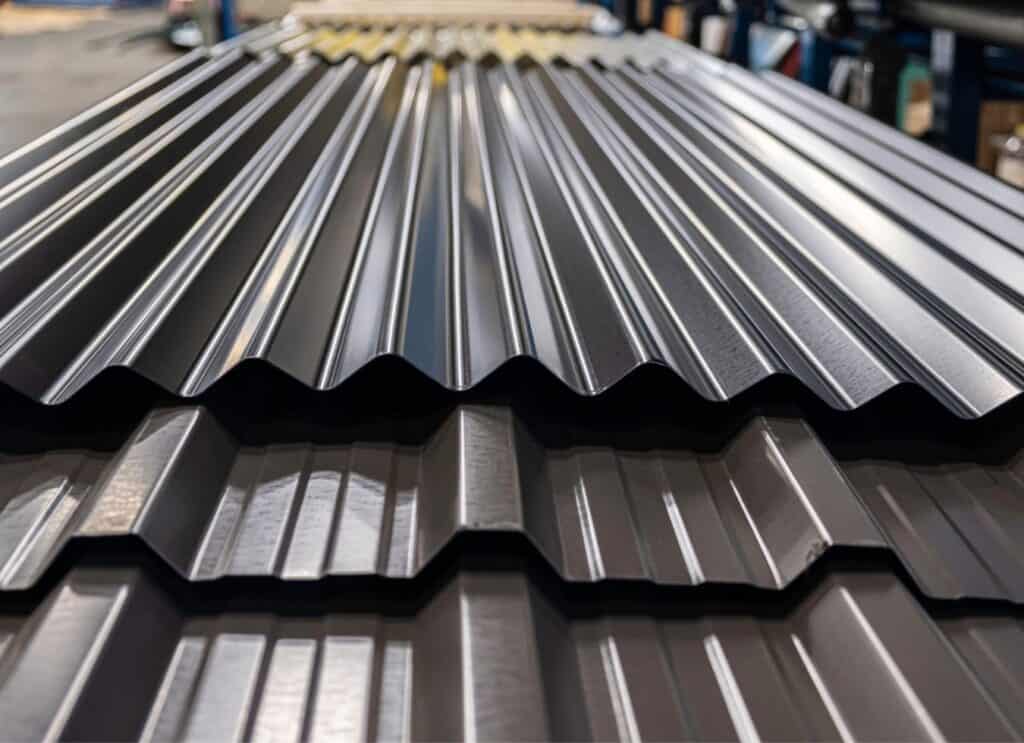
Pros of Metal Roofing
1. Durability: The Toughest Kid on the Block
Let’s start with the big one—durability. Metal roofs are known for their long-lasting nature and can withstand some of the harshest weather conditions you can throw at them. A metal roof may be your best friend if you live in a place prone to heavy storms, hail, or high winds. Here’s why:
- Hail Resistance: Metal roofs are virtually hail-proof, especially compared to traditional asphalt shingles, which can crack or break under the impact of a hailstorm. They do dent when the hail stones are big enough.
- Wind Resistance: Metal roofing is designed to resist high winds (up to 140 mph or more in some cases), making it ideal for areas prone to hurricanes or tornadoes.
- Fire Resistance: Metal roofing is non-combustible, meaning it won’t catch fire like wood or asphalt roofing, providing extra protection for your home.
Metal is an excellent choice for durability, whether you live in a region with extreme weather or want a roof that will withstand the test of time.
2. Energy Efficiency: Save Money and the Planet
We all want to save a little money on our energy bills, and metal roofing can help you. Here’s how:
- Reflective Coating: Most modern metal roofs have a reflective coating that bounces the sun’s rays away from your home, reducing heat absorption. This keeps your home cooler in the summer, reducing the need for air conditioning. Over the roof’s life, this can save you up to 25% on your energy costs.
- Energy Star Ratings: Many metal roofs are rated as Energy Star products, meaning they meet specific performance criteria designed to reduce energy consumption and environmental impact.
By installing a metal roof, you’re not only making your home more energy-efficient, but you’re also contributing to a greener planet. Talk about a win-win!
3. Longevity: A Roof That Can Last a Lifetime
Most asphalt shingles last between 15 and 30 years. Proper maintenance allows a metal roof to last longer than an asphalt shingle roof—40 to 70 years—and sometimes even longer. This extra longevity is a significant selling point for homeowners tired of dealing with costly roof replacements every few decades. Some metal roofs, like copper or zinc, can last over 100 years!
This means that when you invest in a metal roof, you’re not just buying a roof for today but for future generations. Plus, the cost of a metal roof can be offset by its long lifespan and minimal maintenance needs. The return on investment (ROI) is excellent, especially if you plan to stay in your home for many years.
4. Low Maintenance: Less Work, More Play
Another benefit of metal roofing is it is low maintenance. Metal roofs require less frequent attention than asphalt shingles, which can curl, crack, or be worn down by the elements.
- No Moss or Algae Growth: Metal roofs don’t trap moisture like asphalt shingles, so there’s less chance of moss, algae, or mold developing. This is especially important in damp or shaded areas.
- Minimal Repairs: While regular inspections are always a good idea, metal roofs generally require less maintenance than other roofing materials. They’re built to withstand the elements for the long haul.
With a metal roof, you’ll spend less time worrying about repairs and more time enjoying your home.
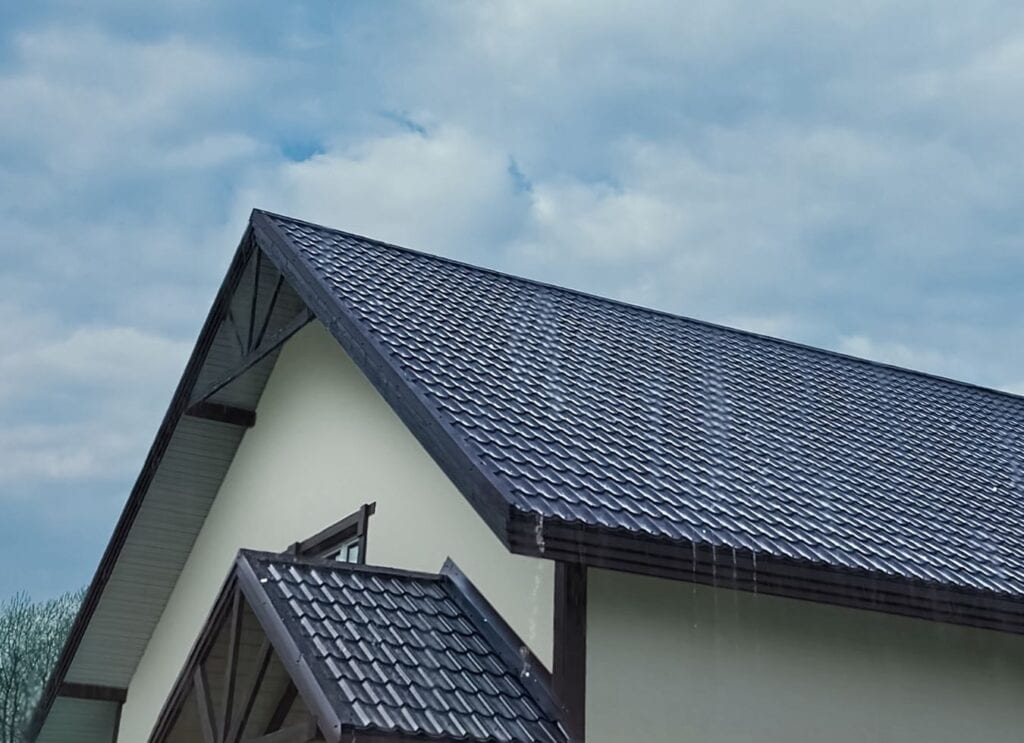
Cons of Metal Roofing
As with any major home improvement decision, there are a few downsides. However, the benefits of a metal roof often outweigh the disadvantages. Let’s take a look at the most common concerns.
1. Cost: The Price Tag Can Be Steep
One of the most significant drawbacks of metal roofing is the upfront cost. While the price has decreased, metal roofing is still more expensive than traditional roofing materials like asphalt shingles.
- Installation Costs: Depending on your chosen material, metal roofing materials cost between $5 and $12 per square foot. However, the price can rise significantly when you factor in installation costs.
- Installation Complexity: Metal roofing requires skilled installation. Hiring and hiring cons are crucial to ensure that it’s properly sealed and fastened. Y is crucial. You may also need a specialized contractor, which can add to the overall cost.
However, it’s important to remember that the long-term savings (due to fewer repairs and increased energy efficiency) often outweigh the initial investment. Plus, if you plan to stay in your home for many years, you’ll get your money’s worth.
2. Noise: The Pitter-Patter of Rain
A common concern with metal roofing is the noise. When it rains, snows, or hails, the sound of the water hitting the metal can be loud. Some homeowners find this soothing, but others prefer the quiet hush of a traditional roof.
Fortunately, modern metal roofs often have insulation layers to help reduce noise. If this concerns you, ask your contractor about soundproofing options for your new roof.
While metal roofs can be noisy during storms, the added insulation and proper installation can significantly reduce this issue.
3. Installation Complexity: Not a DIY Job
As mentioned earlier, installing a metal roof is more complex than installing asphalt shingles. The panels must be aligned, sealed, and fastened to avoid leaks. If you’re considering a DIY installation, think twice. Metal roofing installation requires specialized knowledge and tools.
Hiring a professional roofing contractor with experience in metal roofs can avoid installation problems and ensure the roof is installed correctly. However, this adds to the overall cost.
Generally, metal roofs should be installed by professionals who understand the specific type of roofing required. Professionals to ensure long-lasting performance and avoid costly mistakes.

Is Metal Roofing Right for You?
Now that you’re armed with all the pros and cons of metal roofing, how do you know if it’s the right choice for your home? Here are some questions to ask yourself:
- Do you live in an area with harsh weather conditions? A metal roof could offer the durability you need if you’re in a region prone to heavy snow, hail, or high winds.
- How long do you plan to stay in your home? A metal roof’s long lifespan makes it an excellent investment if you plan to stay for the next 40+ years.
- Are you okay with the initial investment? While the upfront cost is higher, metal roofing’s energy efficiency and long-term durability make it a wise financial decision.
Ultimately, metal roofing is an excellent choice for homeowners looking for a durable, energy-efficient, low-maintenance solution that will last decades. While the upfront cost can be high, the long-term benefits are well worth it for many.

Other Popular Questions We Receive Related To Residential Roofing and Roof Types
Q: What are the pros and cons of metal roofing?
A: Metal roofing has several advantages, including durability, longevity, and energy efficiency. It can last 40-70 years, is resistant to extreme weather, and can reflect solar heat, reducing cooling costs. However, it also has some disadvantages, including a higher initial cost than other roofing materials, potential noise during rain, and the possibility of expansion and contraction, leading to fastener loosening.
Q: What type of metal is best for roofing?
A: The best type of metal for roofing depends on your specific needs. Steel roofing is popular for its strength and affordability, while aluminum is lightweight and corrosion-resistant. Copper and zinc are also options, known for their aesthetic appeal and longevity. Each type of metal roof has its benefits and drawbacks.
Q: How much does a metal roof cost?
A: The cost of metal roofs can vary significantly based on the type of metal, installation complexity, and geographic location. On average, metal roof installation can range from $5 to $12 per square foot, which is higher than traditional roofing materials but offers long-term savings due to durability and energy efficiency.
Q: What are the benefits of metal roofs?
A: Metal roofs have many benefits, including longevity, energy efficiency, and resistance to weather conditions. They also reflect solar heat, which can lower cooling costs. Metal roofs require less maintenance than other roof materials and can be recycled at the end of their life cycle.
Q: What are some common FAQs about metal roofing?
A: Common FAQs about metal roofing include questions about the longevity of metal roofs, installation processes, and how they compare to other roofing materials. Many homeowners also inquire about the noise level during rain and whether they can install solar panels on metal roofs.
Q: What is the disadvantage of metal roofing?
A: Metal roofing has several disadvantages, including a higher upfront cost than traditional roofing materials. Additionally, metal roofs can be prone to denting from hail or falling branches and may require special installation techniques to prevent noise and expansion issues.
Q: How does a metal roof affect energy efficiency?
A: Metal roofs can significantly improve energy efficiency by reflecting solar heat, helping keep homes more remarkable in the summer. This can reduce air conditioning energy costs. Additionally, metal roofs’ longevity means less frequent replacements, contributing to overall sustainability.
Q: What are the pros and cons of metal roofing compared to other roofing materials?
A: Metal roofing offers superior longevity and durability compared to other roofing materials. However, the initial cost is typically higher than asphalt shingles or wood. Metal roofs are also more resistant to extreme weather conditions, while traditional materials may require more maintenance over time.
Q: Can I install solar panels on a metal roof?
A: Yes, you can install solar panels on a metal roof. Many metal roofs, such as standing seam metal roofs, are particularly well-suited for solar panel installation because they allow for easy mounting without penetrating the roof material, which can prevent leaks.
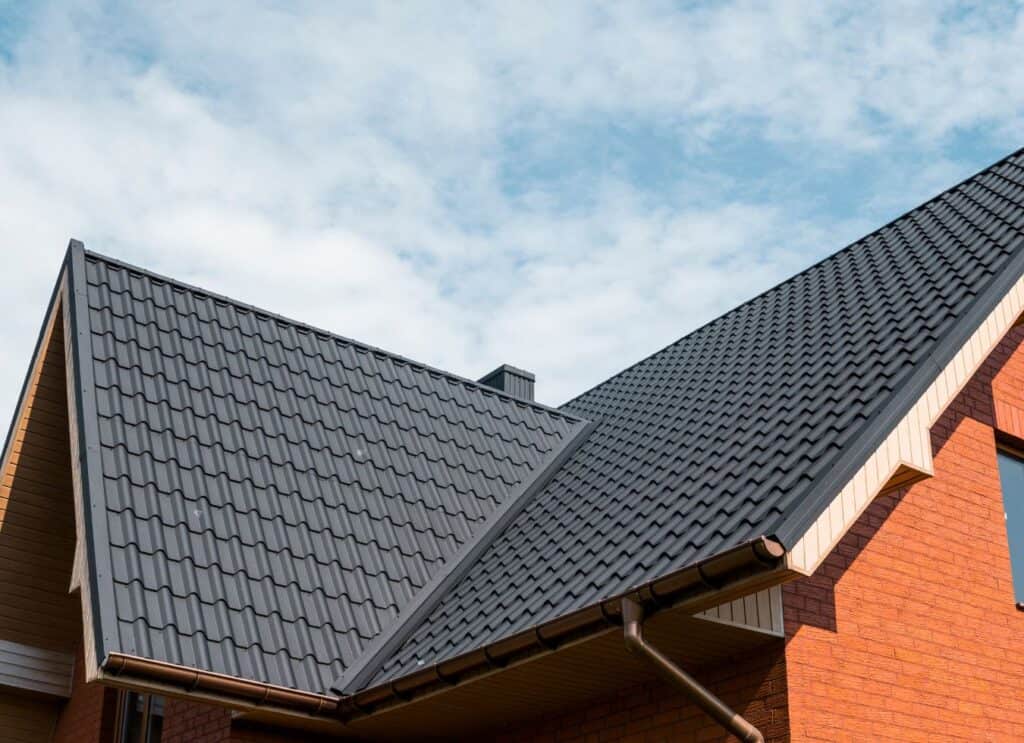
Conclusion: A Roof That Stands the Test of Time
Choosing the right roofing material is a big decision. Still, metal roofing could be the perfect option for your home if you’re looking for a roof that offers unbeatable durability, energy efficiency, and a long lifespan. Sure, there are a few downsides—like the initial cost and installation complexity—but the benefits often outweigh these.
So, whether upgrading your current roof or building a new one, consider metal roofing an investment in your home’s future. After all, a roof is one of the most essential parts of your home, and you want one that will last!
Have questions? Call Denny’s Roofing, and let’s chat to determine whether metal roofing is the right fit for your home and get you started on your roofing journey today!
